As Han Yu, a Chinese historian, poet, philosopher, and politician, wrote in Miscellaneous Discourses, “Only after Bole came into the world were there horses able to gallop one thousand li,” – in other words, talents are everywhere, however seldom can they be recognized. For many film creators, whether they can meet a veteran or mentor who can guide them is crucial to their career. As a responsible and visionary practical training program that supports talented young filmmakers, BJIFF TALENTS is working hard to take on such a responsibility, connecting young creators with the most authoritative and leading practitioners to help them get off to a more stable start in the film industry.
This year, BJIFF TALENTS has invited not only veteran filmmaker La Peikang, but also many leading practitioners such as Hao Lei and Yao Haijun who serve as art advisors, four front-line directors such as Dong Yue, Zhou Ziyang, Ren Pengyuan and Xiao Yang who work as executive producers, and even Lu Yang, a famous Chinese director, to take up the position of chief executive producer who controls and guides the artistic creation and standard of this year’s BJIFF TALENTS from a macro perspective.
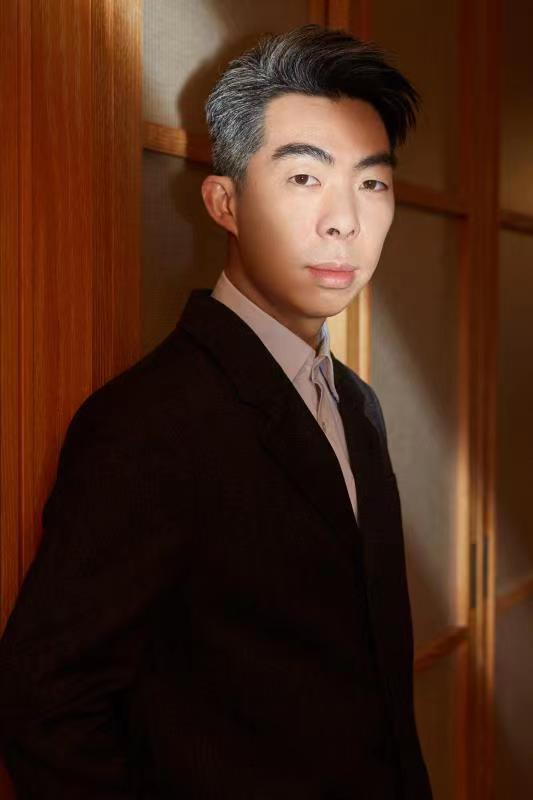
Director Lu Yang
Lu Yang is one of the energetic, insightful and accomplished film directors in contemporary Chinese filmdom. His experience in the industry may be an inspiration to many young people pursuing their dreams in film.
Like many young filmmakers, Lu did not graduate from a film & television college. Although Lu’s father was a teacher at the Central Academy of Drama, he did not want his son to be in this business. Before being admitted to the Graduate School of Beijing Film Academy, Lu was doing a job at odds with the film, because he graduated in engineering and worked as a general staff. In 2003, after working at Phoenix TV for one year, he decided to enroll in the graduate directing program at the Beijing Film Academy as he was still unable to let go of his film dream. In doing so, he made the first step toward his dream.
While studying at a professional school, Lu Yang was also a practical filmmaker starting from little things. After receiving the admission letter from Beijing Film Academy, he quit his job and started working with film crews, doing different jobs such as a script supervisor, assistant director, director’s assistant, and video assistant. Little by little, he figured out the working routine of the crew. When he was an assistant director, there was a film with a lot of outdoor shootings, where the environment was extremely harsh, and what Lu was doing was to stand behind the director, cover the monitor cloth up to block the sun. The day-to-day boredom and hard work benefited him a lot.
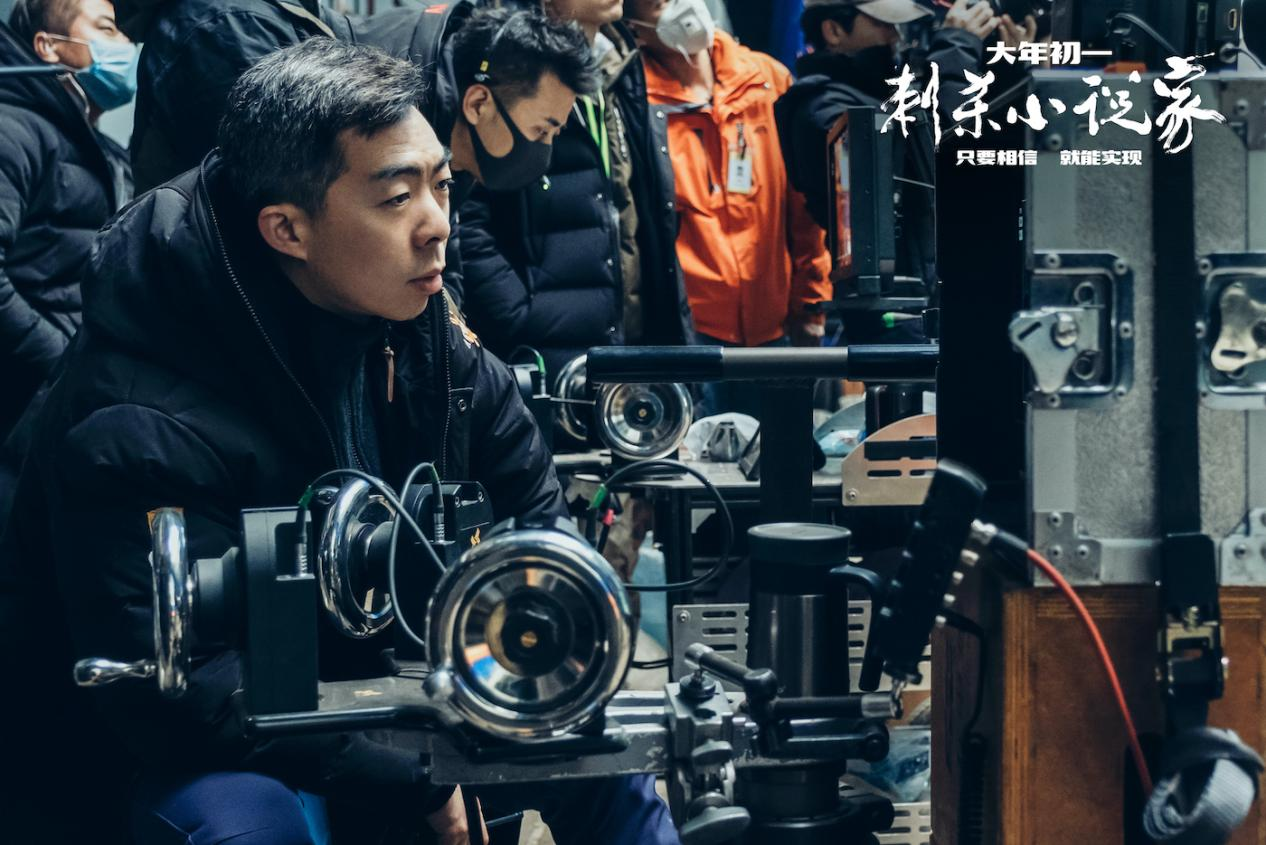
Lu Yang at the shooting site of A Writer's Odyssey
In 2010, Lu Yang won the KNN Award in the New Currents section of the Busan International Film Festival in Korea, the Best Film Award at the Kazan International Muslim Film Festival, and the Golden Rooster Awards for Best Directorial Debut Award for his directorial debut film My Spectacular Theatre. In 2012, his second film Ex Fighting also received international attention and was shortlisted for A Window on Asian Cinema of the Busan International Film Festival.
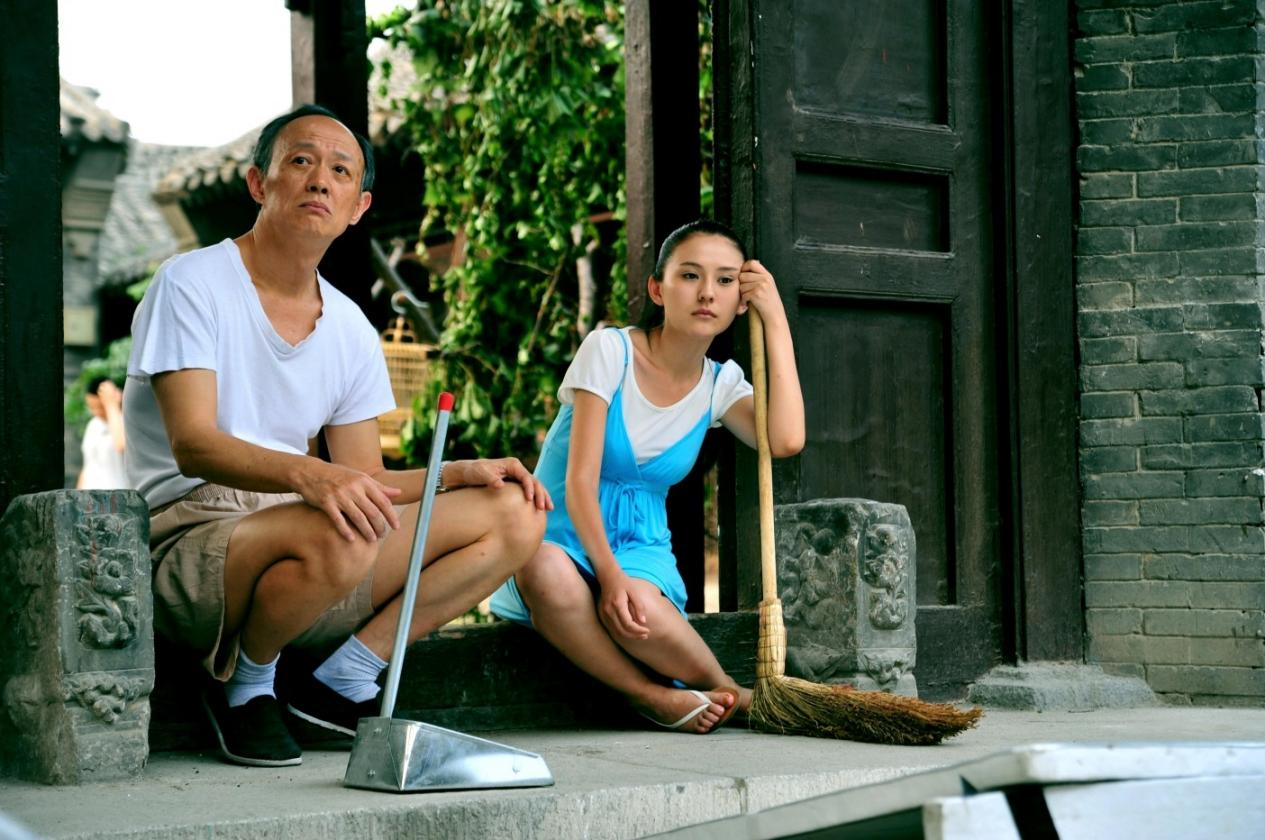
A still of My Spectacular Theatre
In this stage, although Lu has won a few awards, he was still labeled as “academism”. It was his Brotherhood of Blades series, masterpieces made him famous, and A Writer's Odyssey, a visual effects blockbuster that won him 1 billion yuan at a box office during the 2021 Spring Festival period, that really brought him into public view and made him one of the top directors in China.
Though the said two films have different categories and stories, they both explore more possibilities for cinema in terms of script, technology, theme and other aspects worthy of his exploration and deliberation. A Writer's Odyssey, in particular, is the best cross-section of the cutting edge of China’s film industry today.
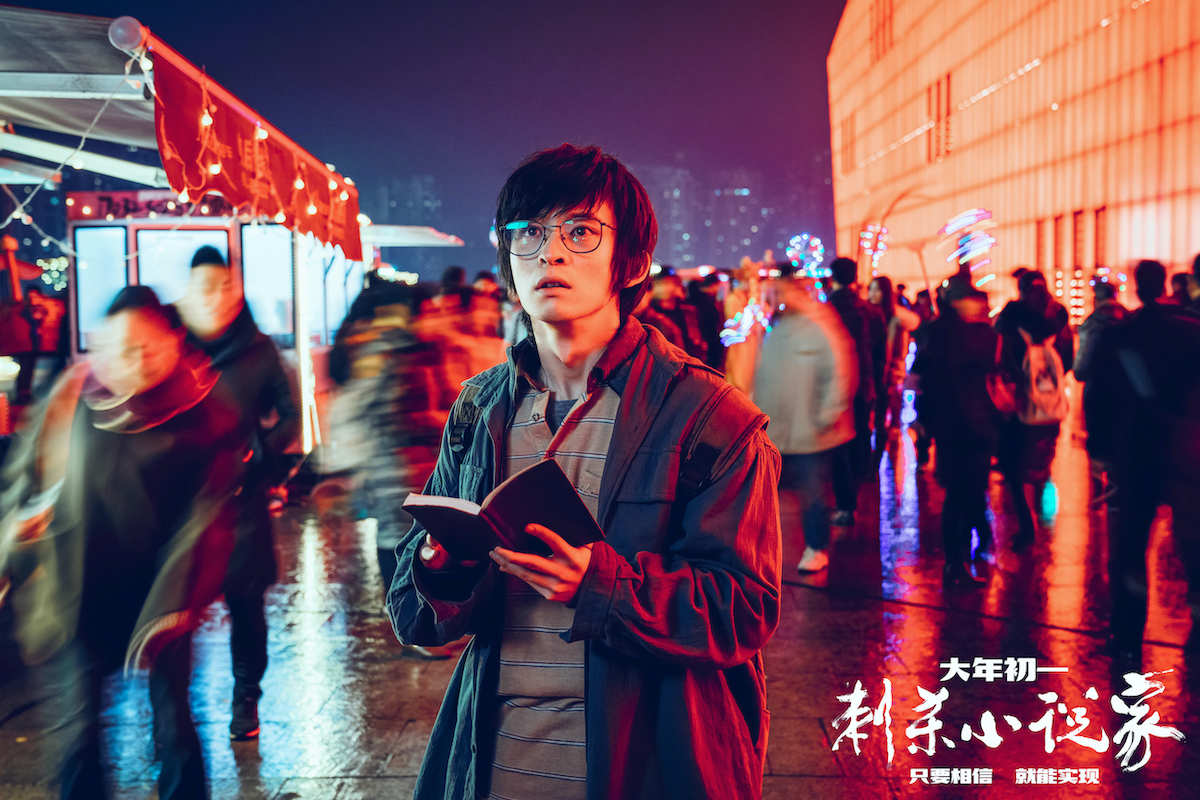
A still of A Writer's Odyssey
In order to make this film, Lu Yang put in nearly five years of hard work. 21 months of script adaptation, 11 months of pre-production, more than one year of official shooting, and two years of post-production – every second showed how difficult he produced A Writer's Odyssey; 15 studios, over 20 built-in scenes, 800 sqm mocap studio, 2,000 conceptual design renderings, and 2,095 storyboards –all this reflected advances the Chinese film industry has made in process and professionalism.
With this meticulousness and dedication, Lu ended up with A Writer's Odyssey hitting the theatres, and for the first time in a Chinese film, he brought together motion capture, facial capture, virtual filming, virtuality and reality combination, and other special effects, pushing the industrialization of Chinese cinema one step forward.
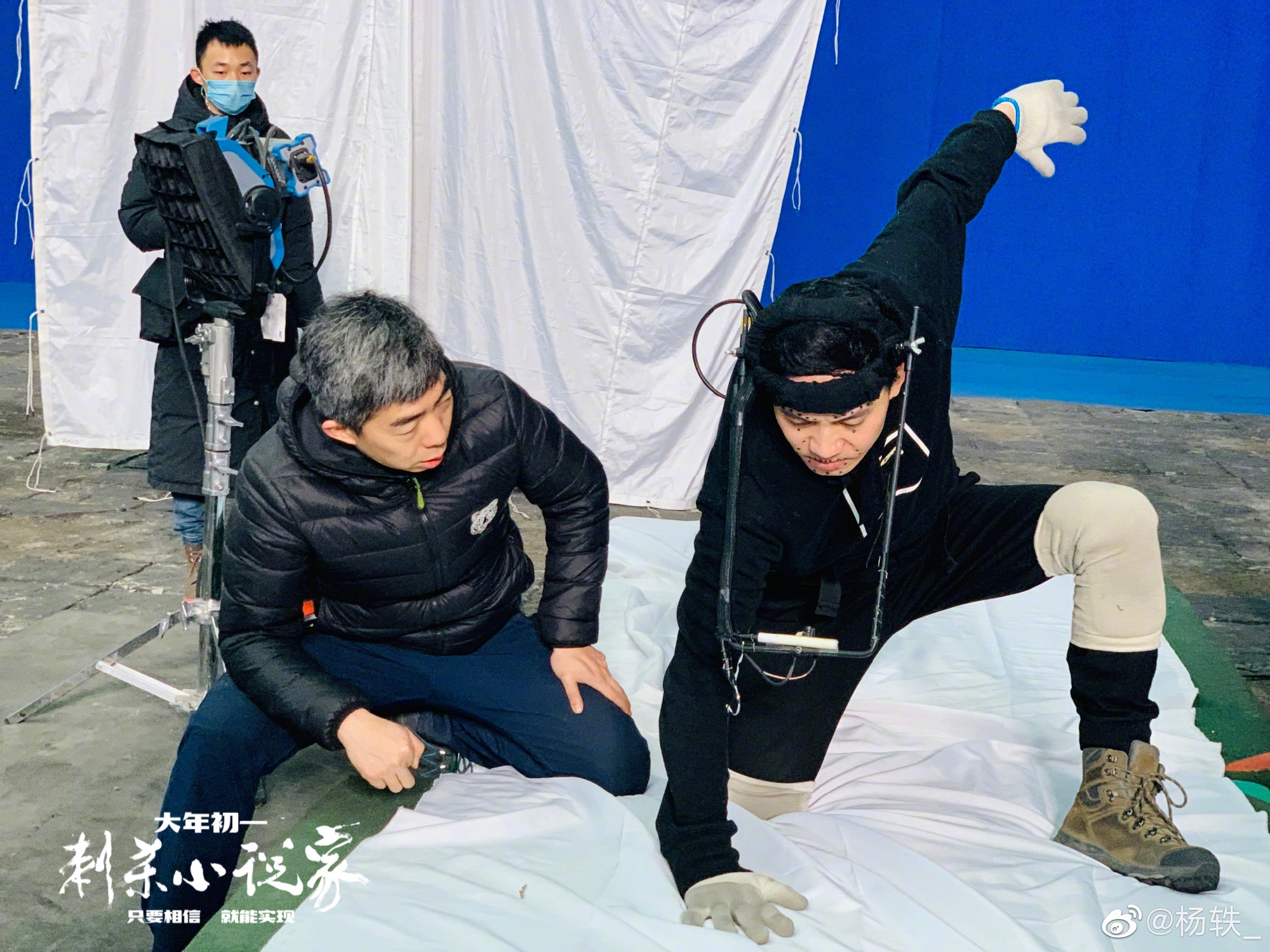
A still of Lord Redmane’s motion capture in A Writer's Odyssey
Once in an interview, Lu Yang said that his films are about hope, perseverance and resistance. This is true of both his Brotherhood of Blades duo and A Writer's Odyssey screened during the 2021 Spring Festival period. What he wants to tell is about mortals who have the courage to challenge the gods, and to take offense at the established rules and rebel against the unjust reality. He can’t stand the mediocrity of eating humble pie. What he aspires to is the challenge of red-armored warriors against Lord Redmane, the rebellion and fearlessness in the green, and the collision and fusion of technology and art that break the rules. This, to some extent, foreshadows or leads a development direction of the film today.
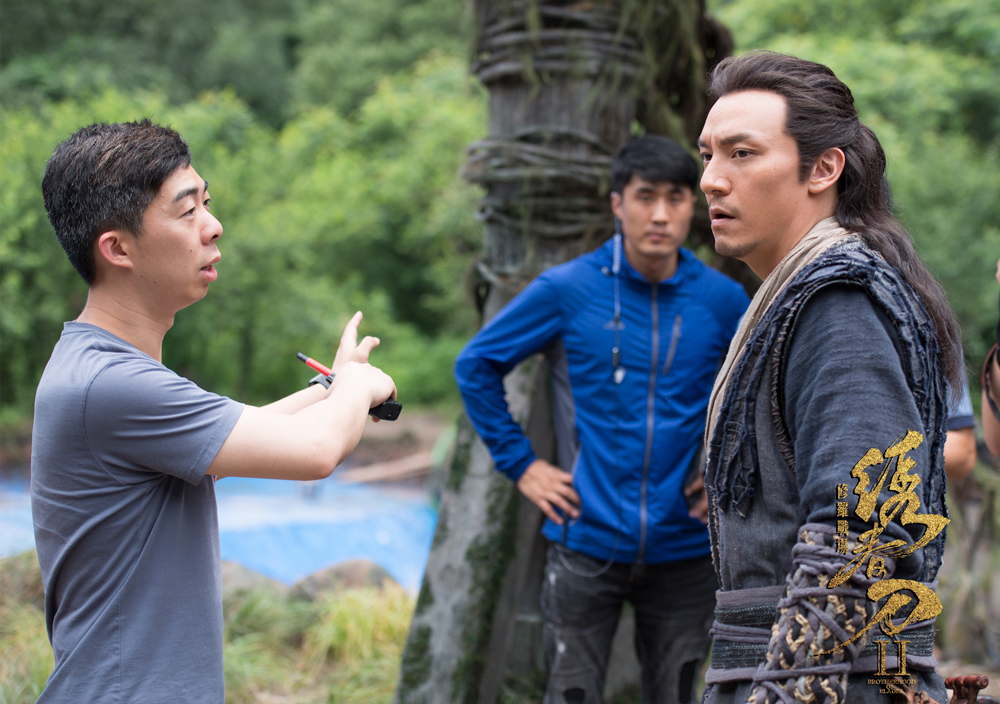
Lu Yang and Chang Chen at the shooting site of Brotherhood of Blades II: The Infernal Battlefield
As a director, Lu Yang expands as many possibilities of images as possible, leveraging technology to empower films, telling stories with distinctive styles, and showing wonders that are hard to see in reality. In him, film is the art of dreaming and a fertile ground worth plowing, “I believe that if we work hard, we are likely to make blockbusters on par with Hollywood’s within 20 years.” With such a fearless frame of mind to exploit the boundary, China’s film industry will press forward.
As the chief executive producer of this year’s BJIFF TALENTS, Lu’s creative spirit and dedication to film will be passed on to a new generation of young directors, inspiring them to forge ahead on the journey of filmmaking. BJIFF TALENTS stands ready to gather the light of the future with pygmy effort and provide a stage for every potential creator to discover and upskill themselves. In 2022, we are walking together with hope and effort.
